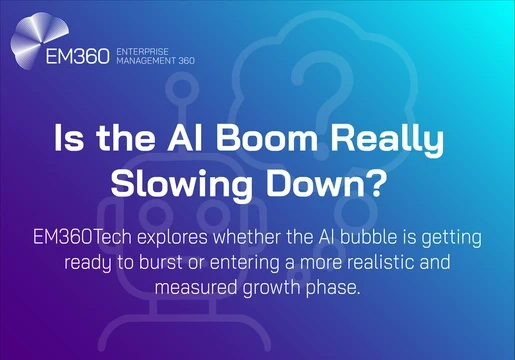A new report suggests that the UK is set to become the next global artificial intelligence superpower as the British government blazes ahead with public sector investment.
The report, carried out last week by WPI Economics on behalf of software firm Splunk, says the UK leads the way in embedding data and employing new technologies across departments and agencies, surpassing leaders like France, Germany and the Netherlands in doing so.
The findings align with the British government’s 10-year AI strategy released last year, in which it aimed to become a global AI superpower within the next ten years by boosting business use of AI, attracting international investment, and developing a new generation of tech talent.
Yet as the country enters a new technological era wired by AI, experts warn that it must reinforce several weak spots within the foundation of its AI strategy if it is to continue on its trajectory of technological prosperity.

Investment into the future
According to the report, one of the main reason for the UK’s success within the space derives from the large amounts of funding invested by the public sector.
Since 2014, the UK government has invested more than £2.3bn into AI as it promised to modernise data management and improve AI infrastructure across the country.
This investment was especially critical during the pandemic, allowing the country’s National Health Service (NHS) to develop AI for medical imaging to better detect the severity of a patient’s condition and provide personalised medical care with the data.
“It’s positive to see government recognition of the value of AI, and their willingness to maintain AI investment despite a looming recession, Sridhar Iyengar, MD for Zoho Europe, commented.
“Thanks to the UK’s commitment to innovation and research and development, more investment in AI will not only strengthen home-grown businesses, but it will promote job creation, support economic growth, and nurture creativity”
In its 2021 ten-year plan for AI, the government highlights a number of new initiatives and investments it wishes to implement within the next ten years.
One of the most significant was its commitment to launching a joint Office for AI /UKRI programme to stimulate the development and adoption of AI technologies in high-potential, lower-AI-maturity sectors, which would allow AI to extend to smaller organisations.

Another critical initiative was a long-term commitment to increasing diversity within the space by improving educational gateways into specialist AI subjects that are often inaccessible to large groups of the population.
In his speech at the CBI last week, Prime Minister Rishi Sunak said that part of this plan would include enticing more high-skilled migrations within the space into the UK. “We cannot allow the world’s top AI talent to be drawn to America or China,” he explained.
To read more about AI, visit our dedicated AI in the Enterprise Page
Cracks within the AI framework
Despite WPI’s promising prediction for the future of AI in the UK, the report joined experts in underlining vital flaws within the foundation of the country’s AI strategy.
The report’s biggest criticism relates to the lack of data strategy within several departments of the government, highlighting the decline of data promotion initiatives and partnerships within several sectors.
It added the need for the UK to do more to improve data capabilities across government, pointing to the lack civil servants having requisite knowledge to improve data usage and share data.
The report warns that the UK government must reinforce these pitfalls if it wishes to successfully implement the AI strategy it promises for the country.







Comments ( 0 )